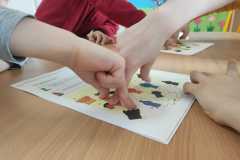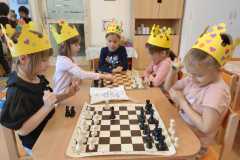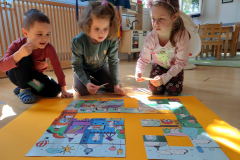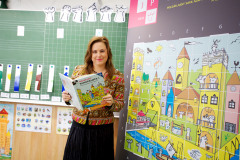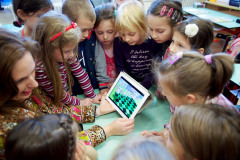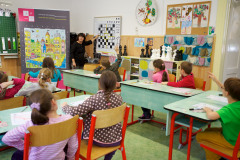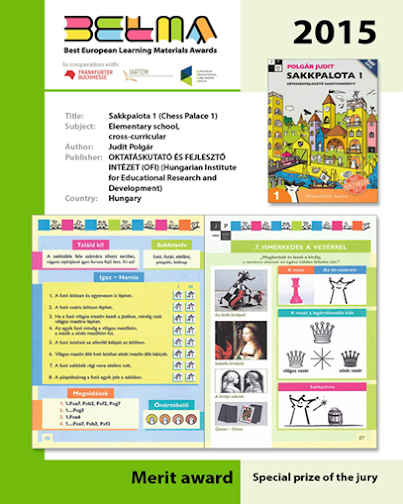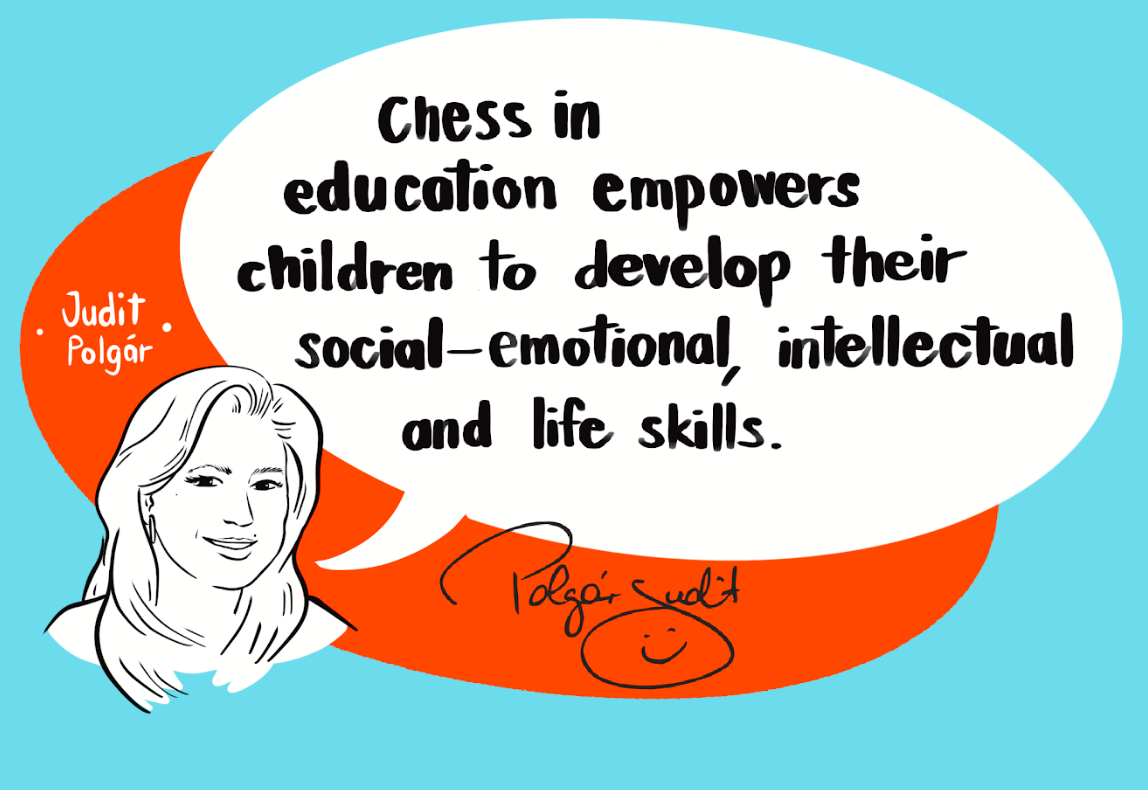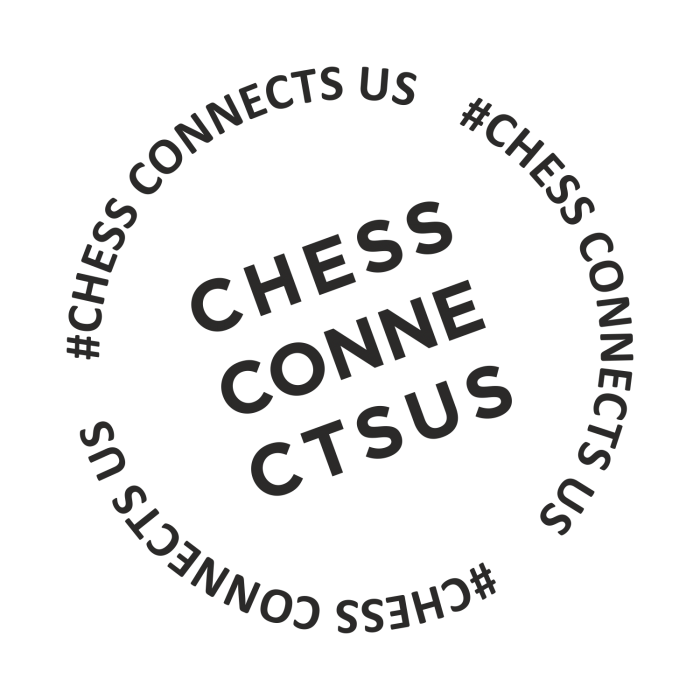“Our goal is for teachers to learn about the skill-developing effects of playing chess.”
The education of children around the world raises many questions: how can future generations be prepared to face the challenges that await them? What educational methods most effectively support the development of children and the work of parents and teachers?
Our way: Judit Polgar Method
Chess-based educational programs are becoming increasingly popular globally, and their effectiveness has been proven by research. Our foundation has been active in this field for more than 10 years. We see chess also as a skill development tool.
We have developed an innovative, in-house educational methodology for children aged 4-10.
- It can be applied at home with the help of the Chess Palace book series.
- It strengthens or establishes relationships between generations within the family.
- It is present in educational institutions, kindergartens, and schools.
The Method is based on maintaining motivation through play. Within the Method, we have developed mutually reinforcing educational programs, the BELMA and Hungarian Product Grand Prize Winner Chess Palace, and the Chess P.E. program. The Judit Polgar Method, which has been recognised and supported by the European Commission (EC), the International Chess Federation (FIDE) and the European Chess Union (ECU) as an outstanding educational innovation, has been part of the Hungarian education system since 2013 and is used in several countries in Europe and China.
Our aim is to make the chess game known to educators for its skill-building effects and to make the method and its programs available to children worldwide for use at home or in educational institutions. We strive to promote chess as a learning tool in kindergartens and schools.
Regular accredited training courses, lectures and workshops organized by our Foundation provide a comprehensive knowledge of the Polgar Judit Method programs and help educators and chess teachers with ideas that can be put into practice on a daily basis.

